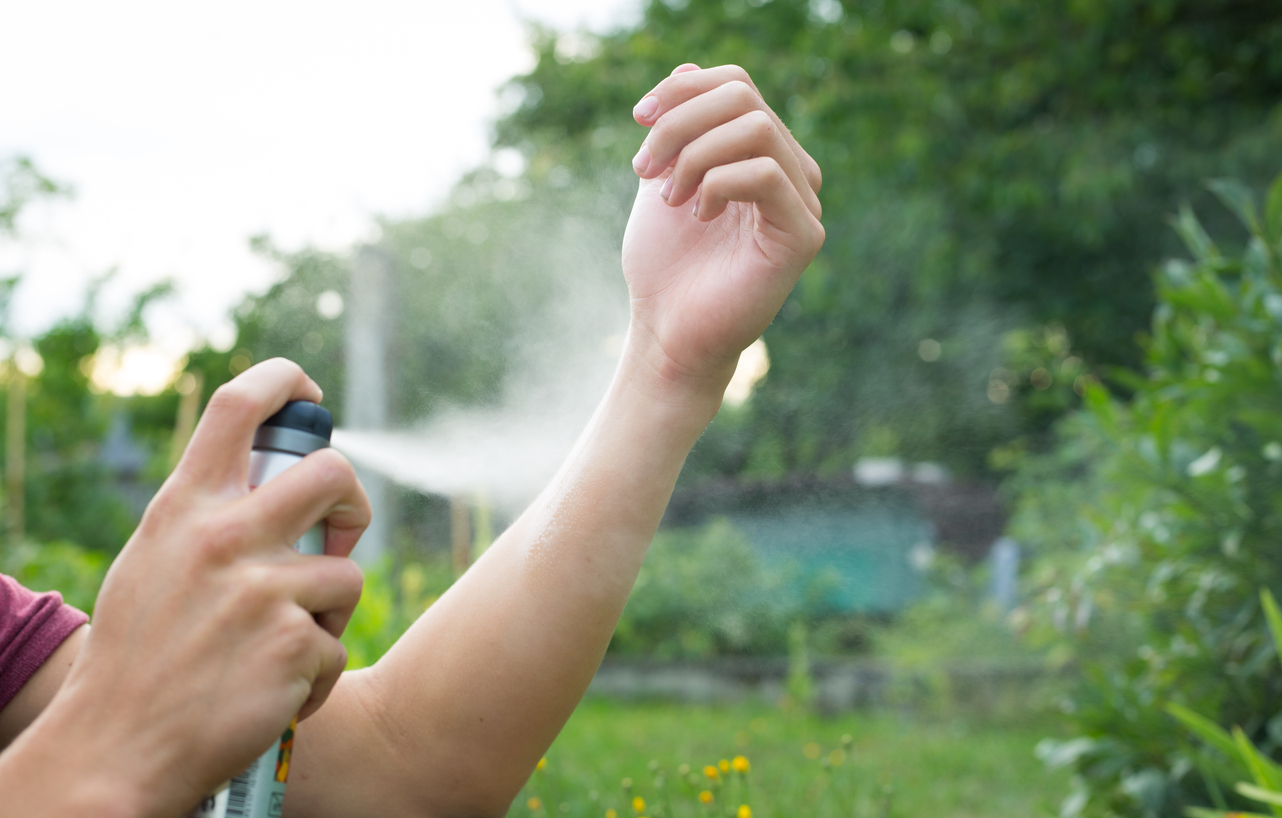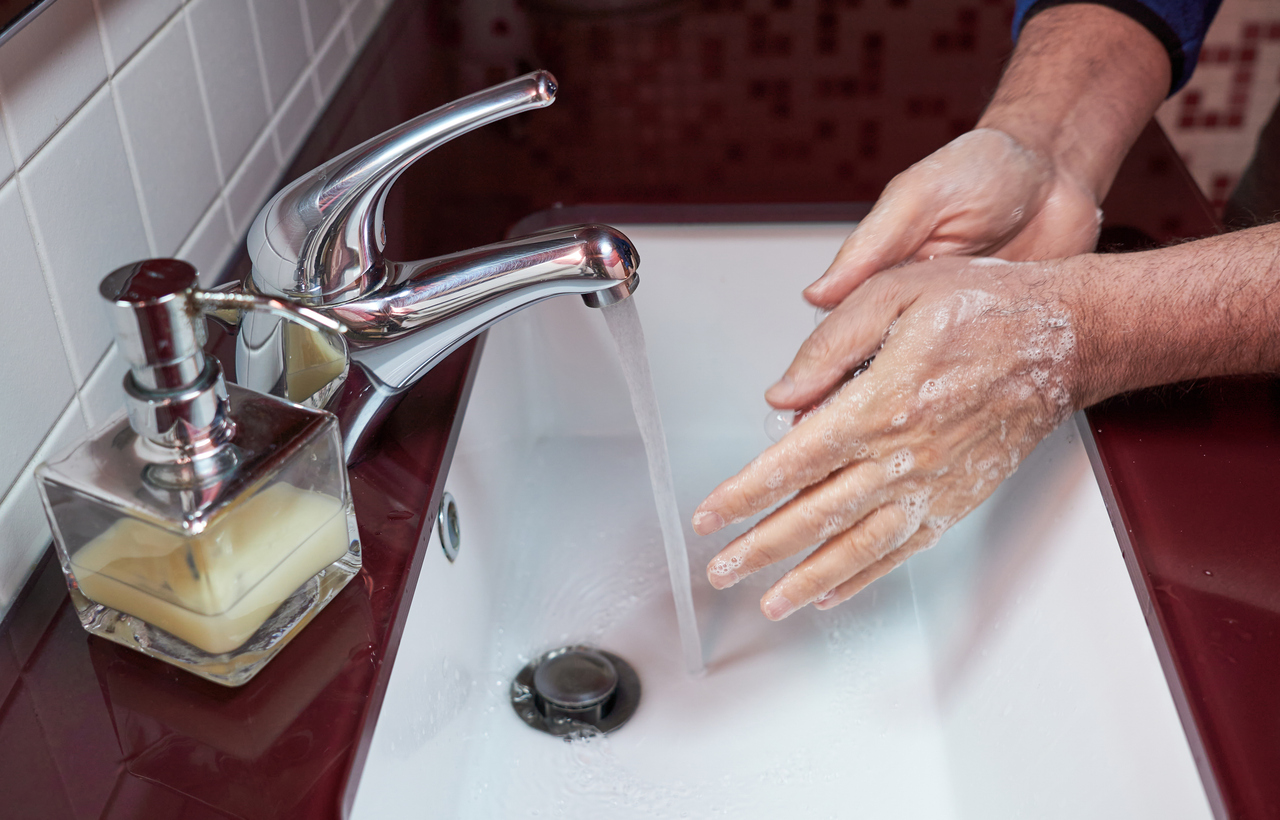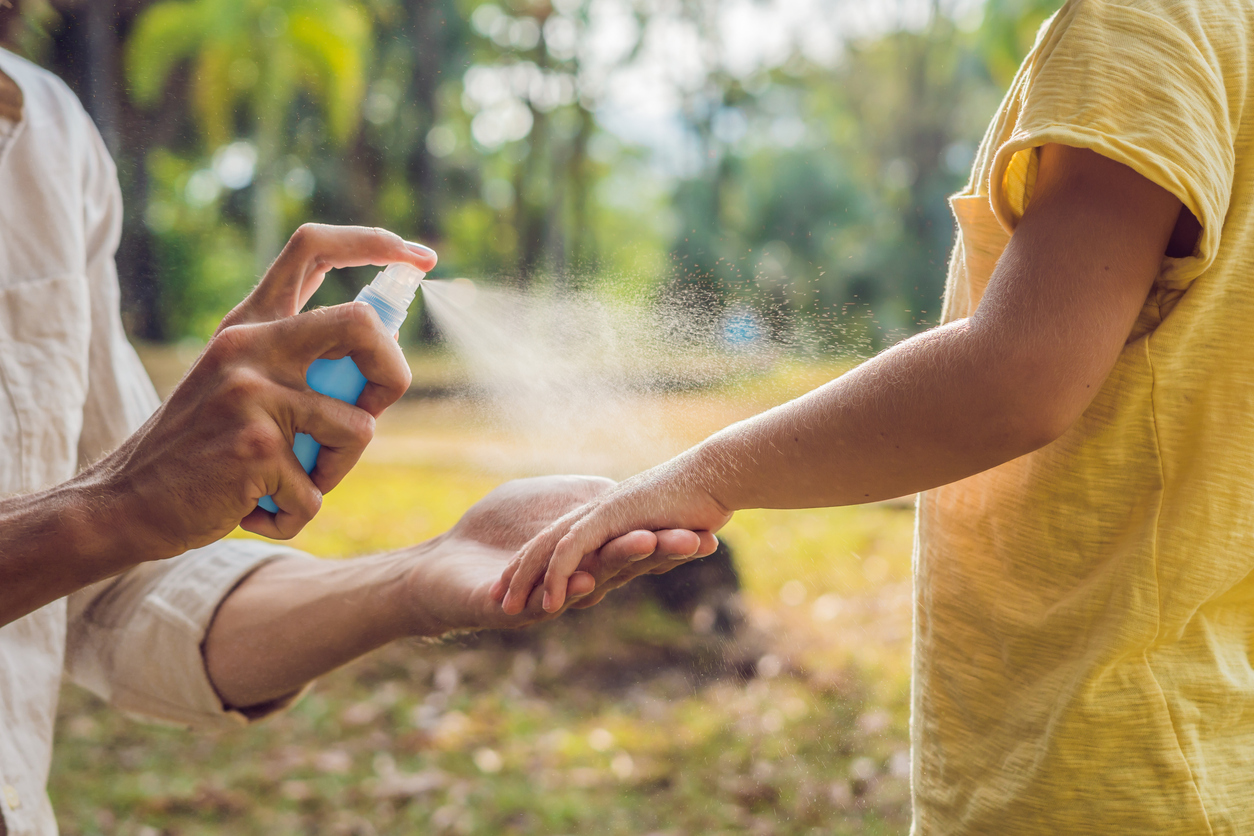How Does Bug Spray Actually Work?
Ah, summer. Sunshine, cookouts, hikes, beach days… and bugs. Lots of bugs.
If you’ve ever spent more than five minutes outside and come back covered in itchy welts, you already know why bug spray is a summer essential. But have you ever stopped to wonder, “How does bug spray work?” It’s easy to chalk it up as a miracle in a bottle, but what’s actually in the liquid you’re spraying all over yourself?
If you think you’ll be in an area with lots of biting summer bugs, we’re here to break down the science behind how bug spray keeps you protected.
First Things First: What Is Bug Spray?
Also known as insect repellent, bug spray is designed to help keep insects from biting you. It doesn’t kill bugs (that would be a job for insecticide), but it does make you a lot less attractive to them.
Insect repellents come in many forms — sprays, lotions, wipes, and oils, to name a few. Some even pull double duty and moisturize your skin. But their primary job? Keeping pesky pests like mosquitoes, fleas, ticks, and biting flies at bay.
So, How Does Bug Spray Work?
The secret to bug spray lies in what attracts bugs to you in the first place. Insects — especially mosquitoes — are drawn to the carbon dioxide we breathe out, as well as our body heat and sweat. Every time we walk outside in the summer, we’re basically letting pests know the bug buffet is open.
Bug spray works by covering up those signals. The active ingredients help create a barrier on your skin that masks your scent. Some sprays even include smells that bugs find downright offensive, giving them another reason to steer clear.
 What’s In Bug Spray?
What’s In Bug Spray?
It’s time to find out what makes the secret sauce so special. While some bug spray ingredients are natural and others are synthetic, all have been EPA-approved as Skin-Applied Repellent Ingredients. Here are some of the most common ones you’ll find:
- Catnip oil, or Nepeta cataria, also known as catmint
- Oil of citronella, a short-term repellent you might recognize as the active ingredient found in popular citronella candles
- DEET, a colorless, oily liquid that offers long-lasting protection
- IR 3535, short for Ethyl butylacetylaminopropionate, a colorless and almost odorless synthetic oil
- Oil of Lemon Eucalyptus, a plant-based extract from the lemon eucalyptus tree
- Picaridin, a non-greasy synthetic liquid, can be used directly on skin or clothing and is good for people with sensitive skin
- 2-undecanone, or methyl nonyl ketone, usually produced synthetically, but can also be extracted from various plant sources, including rue essential oil
Each of these ingredients works a little differently, but all of them help keep you from turning into a bug’s next snack.
What Bugs Does DEET Repel?
If you’ve ever scanned the store shelves looking for the perfect spray, you’ve probably seen the term “DEET.” Short for N,N-diethyl-meta-toluamide, DEET is one of the most common (and most studied) active ingredients in bug spray.
While it’s been mainstream for a while, DEET was originally developed by the US military to protect soldiers from insects in the jungle. It’s known for repelling a wide variety of insects, including:
- Mosquitoes
- Ticks
- Fleas
- Chiggers
- Biting flies
Because DEET can repel so many bugs, it’s still the go-to for people spending time in wooded areas, wetlands, or anywhere bugs thrive.
 Is Bug Spray Harmful to Humans?
Is Bug Spray Harmful to Humans?
This is a common concern, and thankfully, the answer is no. When used correctly, bug sprays are not harmful. Ingredients like DEET, Picaridin, and Oil of Lemon Eucalyptus have all been approved for topical use.
That said, there are a few things to keep in mind. First, don’t apply bug spray to cuts, wounds, or irritated skin. Not only will it sting (ow), but it can also make it easier for the ingredients to get absorbed into your bloodstream and cause a reaction. After all, no one wants to trade mosquito bites for a mysterious rash.
Similarly, you should keep bug spray away from your eyes, nose, and mouth. If you need to protect your cheeks or forehead, spray it onto your hands first and rub it in gently. This will help keep you from inhaling — or tasting — any chemicals.
As a final rule of thumb, you should always follow the label instructions and wash the bug spray off when you’re back indoors. By following these steps, you’ll stay fresh, bug-free, and avoid any irritation.
Don’t Let Bugs Ruin Your Summer
Whether you’re camping, gardening, or just grilling on the back patio, bug spray is a good first line of defense. But if the bugs are still too bold, we offer pest control services that go beyond personal protection. Contact us today to reclaim your backyard from bugs like mosquitoes and enjoy a bug-free summer.







 YouTube
YouTube Facebook
Facebook Twitter
Twitter